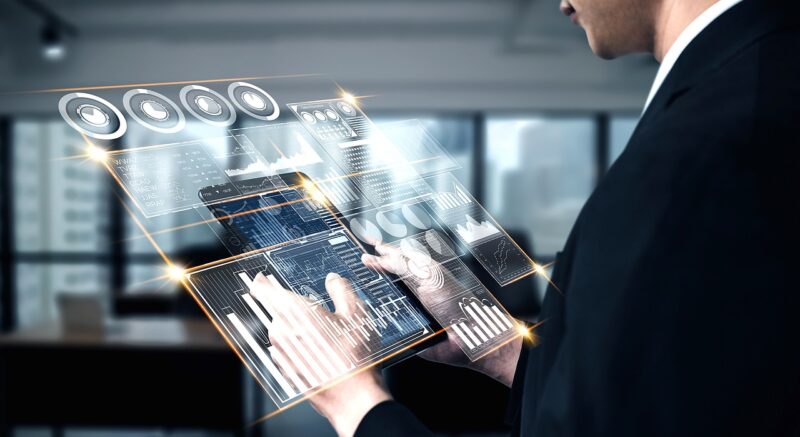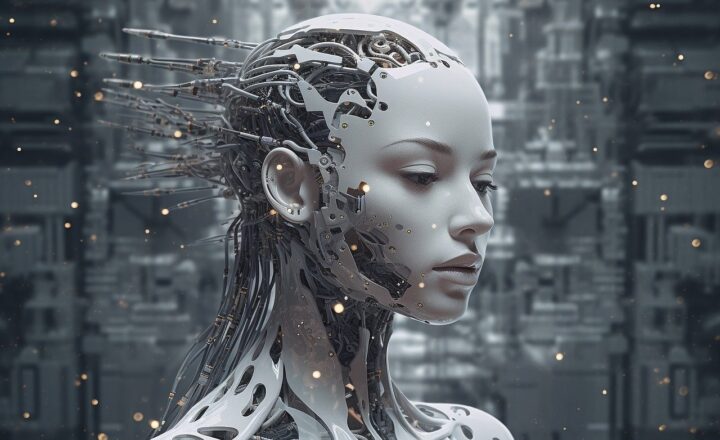From Science Fiction to Reality: The Most Astonishing AI Developments You Need to Know About
November 14, 2024

Artificial Intelligence (AI) has transitioned from mere concepts in science fiction to revolutionary technologies that are changing our world at an astonishing pace. From advanced machine learning algorithms that analyze vast amounts of data in seconds to robots that can interact and understand human emotions, the developments in AI are reshaping industries, enhancing productivity, and even influencing our daily lives.
In this article, we will explore some of the most groundbreaking AI advancements that have made waves across different sectors and examine their implications for the future of humanity.
1. The Emergence of Intelligent Assistants
Intelligent personal assistants like Siri, Alexa, and Google Assistant have made AI a household name. These technologies utilize natural language processing and machine learning to understand and respond to user requests.
While these assistants started as simple voice-activated tools for setting reminders or playing music, they have evolved to handle much more complex tasks such as managing smart home devices, providing personalized recommendations, and even engaging in contextual conversations. In fact, advancements in Natural Language Processing (NLP) are enabling these assistants to grasp context better, allowing for more fluid interactions.
Imagine arranging a dinner party: your assistant could coordinate the menu based on your guests’ preferences, automatically send invitations, and even provide recipes based on the ingredients you have at home.
2. AI in Healthcare: Revolutionizing Diagnostics and Treatment
Artificial Intelligence is making significant strides in healthcare by enhancing diagnostic accuracy and tailoring treatments to individual patients. Machine learning algorithms can analyze medical images, such as X-rays, MRIs, and CT scans, with a level of precision that often surpasses human doctors.
For instance, Google’s DeepMind has demonstrated that its AI can detect over 50 different eye diseases with the same accuracy as expert ophthalmologists. This capability not only speeds up the diagnostic process but also has the potential to reduce healthcare costs significantly.
Additionally, AI-driven predictive analytics can forecast disease outbreaks and personalize treatment plans based on genetic information and lifestyle factors. The potential to revolutionize healthcare is immense, offering better patient outcomes and more effective management of chronic diseases.
3. AI in Autonomous Vehicles: The Future of Transportation
The quest for fully autonomous vehicles has been one of the most ambitious AI developments to date. Companies like Tesla, Waymo, and Uber are leveraging AI technologies to create vehicles that can navigate without human intervention.
These vehicles use a combination of sensors, cameras, and sophisticated algorithms to interpret their surroundings, make real-time decisions, and learn from countless driving scenarios.
The implications of this technology are profound, promising to reduce accidents caused by human error, optimize traffic patterns, and provide greater mobility for those unable to drive. The integration of AI in transportation could reshape urban planning and increase efficiency within public transit systems.
4. The Role of AI in Business Automation and Analytics
AI is transforming the business landscape by streamlining operations and enhancing decision-making processes. Algorithms capable of analyzing vast data sets enable businesses to identify trends, forecast demands, and optimize inventory management effectively.
AI-powered chatbots are becoming a standard tool for customer service, capable of resolving common queries, providing 24/7 support, and even learning from past interactions to improve responses over time.
Furthermore, AI enhances the hiring process through advanced recruitment tools that screen applications and assess candidate fit based on historical company data. This can lead to a more efficient hiring process and minimizes biases that may occur in traditional hiring practices.
5. AI and Creativity: Changing the Face of Art and Music
Artistic creativity, once considered a uniquely human trait, is now being explored by AI systems that can compose music, generate artwork, and even write poetry. Tools like OpenAI’s DALL-E create stunning visual art based on natural language descriptions, showcasing AI’s ability to understand and interpret complex requests creatively.
In the music domain, AI can analyze millions of compositions to create new pieces that blend genres or replicate a particular style. The introduction of AI in creative industries raises questions about authorship, originality, and the very definition of art itself. As AI continues to contribute to creative fields, it blurs the lines between human artistry and machine-generated creations, prompting discussions about collaboration between humans and machines.
Conclusion: The Promising Future of AI
The astonishing developments in AI have only scratched the surface of what is possible. From enhancing daily life through intelligent assistants to revolutionizing healthcare and transportation, AI stands poised to create solutions that were once thought to be purely science fiction.
As society adapts to these advancements, it is crucial to establish ethical guidelines and frameworks to ensure that AI technology benefits humanity as a whole. The journey from science fiction to reality is ongoing, and the most thrilling chapters are yet to be written. Stay tuned for more incredible breakthroughs that continue to shape our world, proving that the future is indeed bright with the possibilities that AI can offer.






